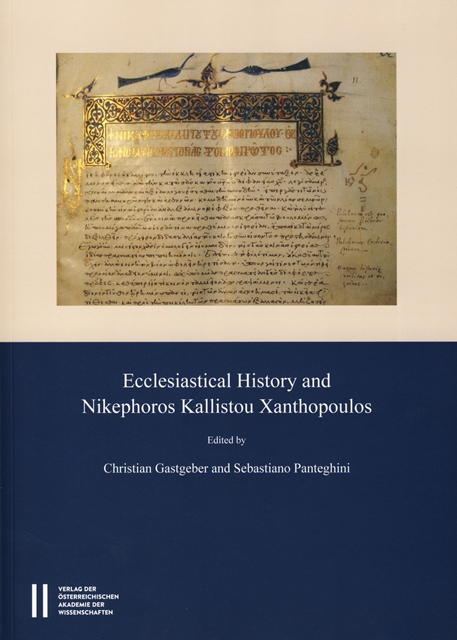
Die an der Wende vom 13. zum 14. Jahrhundert verfasste Kirchengeschichte des Nikephoros Xanthopoulos in 18 Büchern stellt ein Unikum der byzantinischen Historiographie dar. Sie belebte das vor allem in der Spätantike intensiv gepflegte Genre der Kirchengeschichte erneut zu einer Zeit, als sich Byzanz nach der Exilzeit in Nikaia (1204–1261) und dem „lateinischen Trauma“ unter Kaiser Andronikos II. Palaiologos religiös neu definierte und die erzwungene Kirchenunion mit dem Papst auflöste. Im Ambiente der politischen Erstarkung durch die Rückeroberung der Hauptstadt und der Verweigerung der religiösen Subordination schrieb Xanthopoulos eine neue Kirchengeschichte von der Erschaffung der Welt bis zum Jahr 610 n. Chr.; gewidmet ist sie dem „neuen Konstantin“, Kaiser Andronikos II., der Byzanz vor den „Irrlehren“ der Lateiner bewahrt hat. Das Werk schöpft intensiv aus den frühbyzantinischen Vorgängern und ist, zwischen Kritik und Bewunderung, um eine revidierte Kompilation im Geiste byzantinischer Mimesis und Aemulatio bemüht. Um das Werk des Xanthopoulos und seine Quellen von jeweiligen international anerkannten FachexpertInnen der benutzten Autoren analysieren zu lassen, wurde 2011 ein Symposium veranstaltet, dessen Ergebnisse mit diesem Aktenband vorliegen.
…
The Ecclesiastical History of Nicephorus Xanthopoulus, written at the turn of the 14th century in 18 books, presents a unique case of Byzantine historiography; it revives the literary genre of church history, having reached a climax in late antiquity, at a time when Byzantium, under Emperor Andronikos II. Palaiologos, was religiously redefining itself after the exile in Nicaea (1204–1261) as well as the traumatic Latin occupation and dissolved the enforced church union with the Pope. Against the background of political strengthening in consequence of the recapture of the capital and the denial of religious subordination Xanthopoulos wrote a new church history from the creation of the world until the year 610 n. Chr.; it is dedicated to the “new Constantine” Emperor Andronikos II., who has preserved Byzantium from the “heresy” of the Latins. The work extensively draws from the early Byzantine predecessors and, between criticism and admiration, aims at a revised compilation in the spirit of Byzantine mimesis and emulation. In order to analyze his work and sources by internationally recognized experts of each used author, a symposium was organized in 2011 whose results are presented in these proceedings.
2015,
978-3-7001-7682-4
978-3-7001-7889-7
184 Seiten davon 12 Tafeln mit 43 Abb.,
29,7×21cm, broschiert